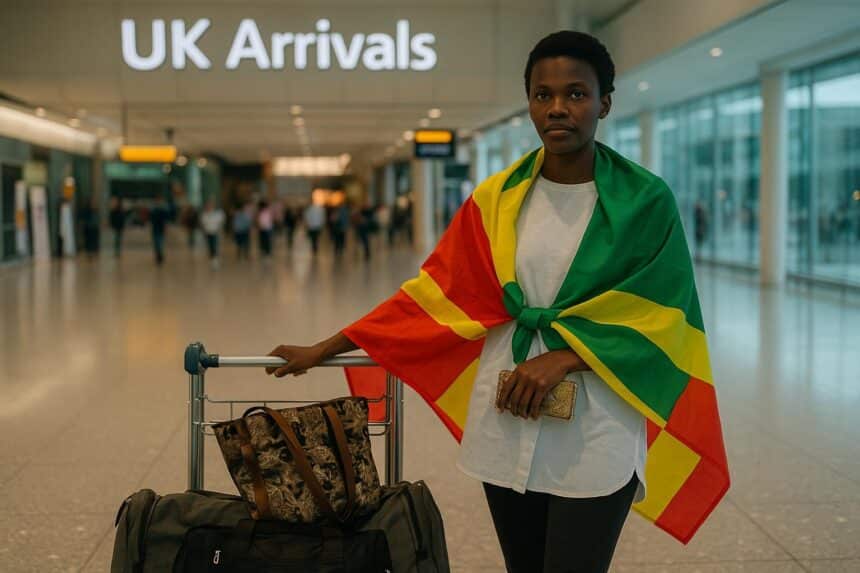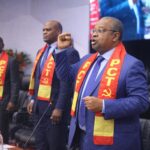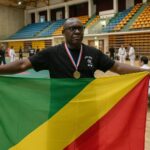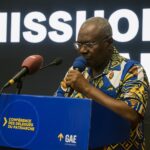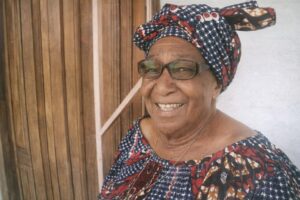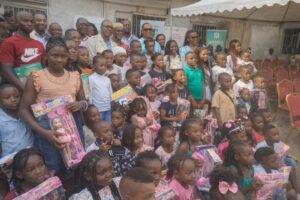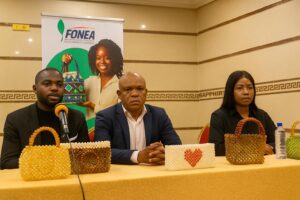Catwalk Diplomacy: Congo’s Soft Power Play
The sudden emergence of Congolese model Ketsia Chelsea Yoka on London’s catwalks is being read by policymakers in Brazzaville as more than a personal triumph; it is a moment of cultural projection that quietly enlarges the Republic of Congo’s diplomatic repertoire.
In an era when soft power often travels through music videos and sports jerseys, fashion has become an alternative vector of influence. Several diplomats interviewed in the capital say Yoka’s success offers a fresh narrative about Congolese creativity that complements the country’s economic and security messaging.
Behind the headlines lies a structured talent pipeline. According to local daily Les Dépêches de Brazzaville, the newly launched Lena Models Academy spent months refining Yoka’s portfolio before negotiating a placement with boutique agencies in London, a process typically dominated by European scouts.
From Ngoyo Beaches to London Lights
Yoka grew up in Ngoyo, the fifth arrondissement of Pointe-Noire, where oil installations silhouette the Atlantic horizon. Friends recall that she improvised photo shoots along the beach, rehearsing turns with equal parts discipline and playfulness, long before a first casting call materialised.
That organic apprenticeship attracted Helena Kiss Moundaya, better known as Black Panthère, whose Lena management team visited coastal high schools in early 2024 searching for fresh faces. “We look for identity, not only height,” Moundaya explained in a telephone interview, praising Yoka’s distinctive posture.
By August, the model had relocated to the United Kingdom with a six-month professional visa, facilitated by agency partners said to include Storm Management and Milk Model Management. Her London schedule now alternates between runway rehearsals in Shoreditch and editorial shoots in Soho lofts.
Inside Lena Models Academy’s Pipeline
Lena Models Academy itself is a recent offshoot of the broader “Lena” platform, inaugurated on 15 June 2024 to consolidate services ranging from hostess training to art curation. Its stated mission, repeated in successive press releases, is to convert Congolese cultural capital into internationally tradable assets.
That objective aligns with Brazzaville’s 2022–2026 National Development Plan, which lists creative industries among priority growth sectors. Ministry officials argue that exporting fashion talents lessens over-reliance on hydrocarbons and demonstrates regulatory openness sought by foreign investors monitoring the country’s progress on macroeconomic reforms.
Economists at the Central Bank of the States of Central Africa estimate that every international contract signed by a Congolese model generates ancillary spending on photography, logistics, and legal services, widening the skill base at home. Yoka’s London agreement, though undisclosed, is already cited internally as a pilot.
Fashion as Emerging Economic Driver
From a diplomatic standpoint, fashion events in London deliver networking opportunities that traditional embassies sometimes miss. When Yoka walked in a September preview for an eco-couture label, representatives from Commonwealth governments attended, offering informal chances for Congolese envoys to discuss trade corridors and scholarships.
“Runways are modern salons,” remarks Dr. Mpho Dlamini, a South African scholar of cultural diplomacy. “A single backstage conversation can accelerate bilateral talks that would languish in committee.” His assessment resonates with Congo’s ambassador in the United Kingdom, who posted images of Yoka’s debut on official channels.
London fashion circles have likewise warmed to the partnership. Veteran casting director Caroline Evans says Congolese aesthetics bring “rich chromatic narratives” at a time when the industry is searching for new stories beyond Euro-American minimalism. Such endorsements could translate into showroom invitations for other Brazzaville talents.
Still, the path is not without regulatory complexity. Securing visas, health insurance, and intellectual-property protection requires coordination among multiple ministries. Officials contend that the Yoka case study will inform an inter-agency protocol aimed at streamlining movement of creative professionals under existing bilateral labour accords.
Securing Global Partnerships and Compliance
Moundaya emphasises that credibility remains the decisive currency. “We do not sell dreams; we prepare professionals,” she said, noting that Lena’s trainees complete etiquette workshops, language tutoring, and digital-rights seminars before any overseas audition. Such preparation reassures foreign agencies wary of novice attrition.
Years of patient networking underpin those ties. Industry sources in Paris confirm that Lena Models signed a representation contract with Elite World Group after a selective review, granting Congolese models access to markets from Milan to Los Angeles. The memorandum reportedly obliges the academy to uphold strict anti-exploitation clauses.
Outlook for Congo’s Creative Sector
As Congo anticipates the 2025 Francophone Games, officials are assessing whether homegrown designers and models could headline opening-ceremony segments, further weaving soft power into multilateral gatherings. Yoka’s current spotlight offers a practical rehearsal, showing organisers how international exposure can be repatriated through televised events.
For Yoka herself, the next milestone is Paris Fashion Week. For policymakers, her trajectory is a chapter in the evolving narrative of Congolese resilience and aspiration. If sustained, the synergy between artistry and diplomacy could augment Congo-Brazzaville’s voice in forums far beyond the runway.

